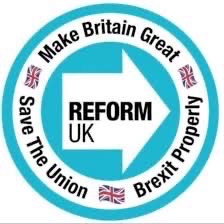 The Reform Party is on a mission to reshape British politics, a quest driven by Nigel Farage’s unapologetic push to “take back control.” Central to their manifesto is the promise to withdraw from the European Convention on Human Rights (ECHR). Farage and his allies argue that the ECHR is a relic, that hinders Britain’s ability to govern itself and secure its borders effectively. By exiting the ECHR, the Reform Party believes Britain can reclaim its sovereignty and restore law and order.
The Reform Party is on a mission to reshape British politics, a quest driven by Nigel Farage’s unapologetic push to “take back control.” Central to their manifesto is the promise to withdraw from the European Convention on Human Rights (ECHR). Farage and his allies argue that the ECHR is a relic, that hinders Britain’s ability to govern itself and secure its borders effectively. By exiting the ECHR, the Reform Party believes Britain can reclaim its sovereignty and restore law and order.
A cornerstone of their campaign is the vow to “stop the boats.” The UK has seen an influx of immigrants arriving by sea, many of whom claim asylum under what the Reform Party deems dubious pretences. Farage has been vociferous about his plan to halt this phenomenon. The manifesto asserts that immigrants who come to the UK illegally or under false pretences will be swiftly returned. This isn’t about racism, the party insists, but about fairness and order. They claim a robust system that discourages illegal immigration while encouraging those who follow the proper channels is the most just approach.
On the economic front, the Reform Party is pushing to raise the income tax threshold to £20,000. This move would lift six million people out of paying income tax altogether, providing significant financial relief to many households. Farage and his supporters argue that this policy would stimulate the economy by increasing disposable income and boosting consumer spending.
The National Health Service (NHS) is another major battleground. Farage paints a picture of an NHS on its knees, burdened by bureaucratic inefficiency and excessive spending on middle management. The party’s solution? Streamline operations by cutting out unnecessary layers of management and redirecting those funds towards frontline services. Farage envisions an NHS where resources are maximised, and patient care is the ultimate priority.
Then there’s the issue of net zero. The Reform Party is unequivocal in its stance: the current net-zero policies need to be scrapped. Farage and his team argue that these environmental targets are economically damaging and unrealistic. Instead, they advocate for a more balanced approach that considers economic growth and energy security alongside environmental concerns.
Nigel Farage’s influence in this election cannot be overstated. A political maverick, Farage has managed to galvanise a significant portion of the electorate who feel disillusioned with the mainstream parties. His plain-speaking style and defiance of political correctness resonate with many voters who see him as a refreshing alternative to the status quo. The Reform Party, under Farage’s leadership, is positioning itself as the voice of the common people, promising to address their concerns head on.
In a significant development, a Muslim businessman, Zia Yusuf recently made a substantial donation to the Reform Party, signaling a noteworthy endorsement. This businessman publicly stated that many Muslims, particularly those who have lived in the UK for generations, are just as patriotic as any other citizens. This sentiment challenges the often one-sided media portrayal and underscores a broader acceptance of Farage’s policies within diverse communities. This endorsement is a powerful rebuttal to accusations of racism, emphasising that the party’s message of fairness and national pride transcends ethnic and religious boundaries.
The Reform Party’s rise has serious implications for the Conservative Party, which faces the very real prospect of a dramatic electoral wipeout. Farage’s movement is not just a flash in the pan. It represents a significant shift in British politics. Voters who feel betrayed by the Conservative’s failure to deliver on key promises are flocking to the Reform Party, drawn by its unambiguous and bold policy positions.
As Farage’s influence grows, the political landscape in the UK is undergoing a seismic change. The Tories, once the dominant force, are scrambling to respond to a resurgent Farage and his army of supporters. With the promise of reclaiming control, ending unchecked immigration, reforming the NHS, and rejecting net zero, the Reform Party is offering a vision of Britain that many find compelling.
Farage’s rhetoric, laced with wit and sarcasm, cuts through the noise, capturing the frustrations and hopes of a diverse electorate. As the election looms, one thing is clear: the Reform Party, under Nigel Farage’s stewardship, is reshaping the future of British politics in a way that few could have predicted.
He is also running to be elected as an MP in the constituency that I live in. Part three will delve into the issues that he will have to face at grassroots level over the next five years, all whilst juggling his time to establish Reform as serious opposition at the 2029 election.